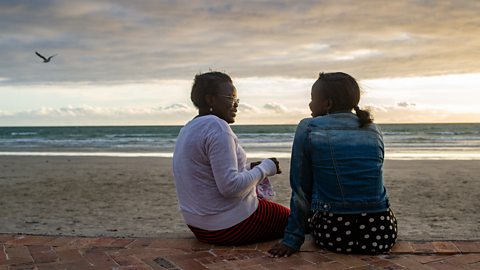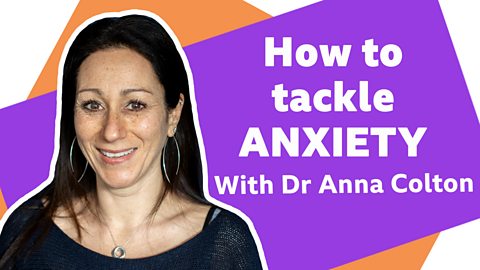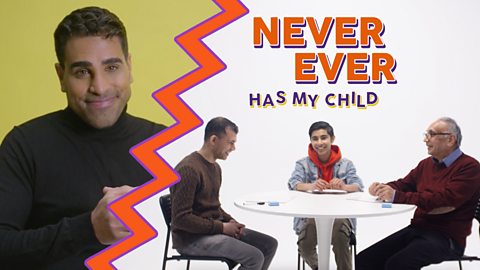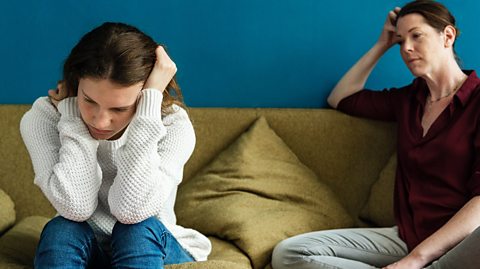Childhood, as you will no doubt remember, is a period of discovery and exploration, but also uncertainty as you try to work out who you are as well as your place in the world.
For some children, these discoveries and explorations may be passing, and for some other children they lead to fundamental changes that carry on through life. As a parent, this can be unexpected and sometimes even overwhelming, especially if you have little experience or understanding of these areas.
Often this is the case if your child opens up about how they are feeling about their sexuality or gender identity. It’s likely to be a really significant time for both them and you.
They might be extremely nervous, and you might be extremely nervous about saying ‘the wrong thing’ and inadvertently cause your child to shut the conversation down. Yet, using the right language can often feel like a minefield. And let’s not forget that you might also be feeling a mixture of emotions yourself, so you might not be so able to engage with your normal thought processes.
Getting your head around what means what can give you more confidence when having these conversations. To help you do just that, three charities that support LGBTQ+ children and their parents and carers have some tips…
Understanding what children are saying
The language around sexuality and gender continues to change over time and your child may be using terms that you might not fully understand.
Jess Borthwick is a Family Support Worker at the charity All Sorts Youth Project which connects and supports LGBTQ+ children and their families.
She says, “It’s okay not to understand, and the varied terminology and language can be overwhelming! The language is complicated, nuanced and moves quickly, and the meanings are often very personal to the individual.”
She also says that if you have limits to your knowledge, own up to it, saying something like, “I’m not sure I’m totally up to speed on this stuff. Is it okay if I ask you some questions about what this means to you?”

Sarah Furley, Vice Chair of FFLAG, a charity that offers peer support to the parents and carers of LGBTQ+ children, agrees that asking questions is a good idea and also thinks that you can take a proactive approach.
She says, “Whilst it’s good to ask your child questions and let them know that you’re interested in what it means for them personally, parents can also relieve their child of some of the burden of explanation by finding things out for themselves. It is useful to have the vocabulary to be able to talk about these things with your child sensitively.”
She adds that although what you’re hearing is new to you, it’s likely something your child has been considering for a while…
"Remember that your child has probably been thinking about and exploring this for some time – whereas you’ve just found out and you now need to go through that process of learning and discovery too."
“The main thing to understand is what it means for your child, and the actual terminology doesn’t need to get in the way of asking how they feel and whether you can do something to make their life easier.”
What if I say the wrong thing?
It’s normal to be nervous if you’re talking to someone about a subject you’re not an expert on, especially one where there are emotions involved.
Lisa Harvey-Nebil is CEO of the LGBT+ youth charity The Proud Trust, an organisation which supports LGBTQ+ young people through youth groups, mentoring and an online chat service.
She says, “Often people get so worried about getting it wrong they avoid the topic altogether and actually it’s okay to not get it exactly right, it's all about having open and honest communication.”
Giving permission to correct any mistakes you make is something Jess thinks can be useful. She says, “Invite your child to correct you if you get something wrong - and then don’t be offended if they do! It can be helpful to frame it as something that you are learning about, so you might not get it right all the time but you’re trying because you’re interested in what your child is experiencing.”
Jess says that if you do make a mistake, “Simply correct yourself, apologise, and move on. The more of a big deal you make of it, the more painful it can be for everyone.”

Changing language
Whilst a child might start using certain language to describe themselves, they may then change the terms they prefer.
Jess says, “This is a normal and healthy part of identity exploration. The more they are able to explore, the more they are able to find out what fits. Don’t be alarmed if they find something that's a better fit - most young people will settle into a more consistent identity as they age.”
How we talk about LGBTQ+ experiences has changed, like how the term LGBTQ+ itself has grown.
Lisa says, “Language evolves over time and LGBT+ terminology is no different. Often terms get added as people want the comfort of words to describe their identity. As time has gone on and our understanding of gender and sexuality has expanded, some definitions have been updated to match this. That's why the + in LGBT+ is so important as it encompasses and celebrates all identities.”
Jess says, “It is less important to try to keep up with the language and more important that we behave inclusively to everyone regardless of their identity.”
Useful terms explained
Below are some of the words and terms you might hear your child say in a conversation about sexuality and gender identity, together with what they might mean.
This is by no means a definitive guide. Some people may use some words or phrases in different ways, but you may find this a helpful starting point if your child comes to you to talk about these subjects.
Asexual
Asexual means not experiencing sexual attraction. So if your child uses it, they might be telling you they just don’t fancy people the way their friends seem to, and they might be confused or worried about it.
Cis
If your child uses the word 'cis', or 'cisgender', they are most likely referring to people who are not transgender, that is, people whose gender or gender identity is the same as the sex which was registered at their birth.
Deadnaming
Many transgender people choose to change their name and your child may tell you they want to be known by a different name.
If someone refers to them by the name they were previously known by, but no longer wish to use, this is often referred to as ‘deadnaming’, and if done deliberately can be very upsetting.
Gay
Gender identity
Your child may talk to you about their 'gender identity' - or they may just say ‘gender’. This is a term often used by some people to describe their own internal sense of their gender, which might, for example, be male, female, or non-binary. However, some people don’t have an internal sense of their own gender identity.
Either may be the case for your child. It’s fine to ask your child to tell you more about what this means to them and how they feel.
A conversation about gender identity might just be that your child wants to express themselves in a certain way, which could be through their appearance (e.g. clothes or hair) or behaviours. This is referred to as 'gender expression'.
If your child is telling you that they don’t feel that their gender identity is the same as the sex that was recorded on their birth certificate, this is often referred to as 'gender dysphoria'.
Lesbian
'Lesbian' refers to a woman who is attracted to other women.
A lesbian might also refer to themselves as gay.
Non-binary
'Non-binary' is typically used when someone doesn’t identify exclusively as male or female, although the term is used by different people in different ways.
Some non-binary people may have an internal sense of gender identity that encompasses both genders, whereas others may have no internal sense of gender at all. Again, it’s fine to ask your child to tell you more about what this means to them and how they feel.
Outed
If someone is outed, it means their sexuality or gender identity has been disclosed without their consent.
If your child says that they have been outed, it might be that they told another child at school something in confidence and that that child may have told others, thus 'outing’ your child. Outing can be upsetting, scary, or even traumatic for the person being spoken about.
Pan
Also known as 'pansexual'. If your child talks about being pan, it means that they are attracted to people regardless of their sex or gender identity.
Pronoun
We use a pronoun for someone instead of using their name. For example: ‘Today I saw Jo, she looked really nice’, or, ‘I saw Sam yesterday, I really like him’. A lot of the time pronouns are gendered like she/her/hers or he/him/his.
However, it might the case that your child wants to use pronouns that are neither male or female. This might be using they/them/theirs. For example: ‘I saw Jo today, they looked really nice’. There are also other non-gendered pronouns such as ze or hir, and they may choose one of those.
Queer
If your child says they are 'queer', they are saying that they identify with a minority sexual orientation or gender identity.
They might have chosen to adopt 'queer' because they do not identify with the labels other people may choose to adopt.
The term was once used as an insult, but has been claimed back in the same way marginalised groups have claimed back other terms.
Sex
If you child talks about their 'sex', they are probably referring to what was officially recorded at birth, which would have been either male or female.
Sex is based not only on the genes we inherit, but also on how our external and internal sex and reproductive organs work and respond to hormones.
Straight
If your child talks about someone being 'straight', it refers to them being attracted to someone of the opposite sex or gender identity.
Straight also means 'heterosexual', which is sometimes shortened to 'hetero'.
Trans
If your child says they are 'trans', or 'transgender', they are saying their gender identity is different from their sex that was recorded at birth.
'Transgender' is an umbrella term and may include those who identify as non-binary.

BBC Action Line LGBT Information and Support - Links to websites and organisations that may be able to help with issues around sexuality and gender.

More from BBC Bitesize Parents' Toolkit…
Parents' Toolkit
Fun activities, real-life stories, wellbeing support and loads of helpful advice - we're here for you and your child.

Tom Daley: Illegal to be Me - when your children have questions about LGBTQ+
How parents can talk to their children about LGBTQ+ if they have questions, or if they're in the process of coming out.

How to tackle anxiety with Dr Anna Colton
Dr Anna has made seven short films with easy to learn techniques.

Dr Ranj Reacts to Never Ever Has My Child
We showed Dr Ranj some films from our intergenerational 'Never Ever...' series. He reacts to the films and offers advice to parents around mental health stigma.

Mental health first aid kit for parents: Who to ask and what to do
Worried that your child needs help with their mental health? Here's how you can access professional help and support your child while you wait.

Michael Mosley: Five tips for helping your kids sleep well
Dr Michael Mosley offers advice on improving health and concentration through better sleep habits. Here are his tips for parents to help their kids.
